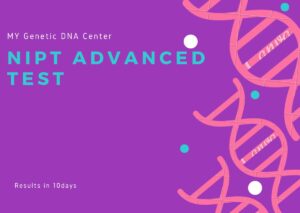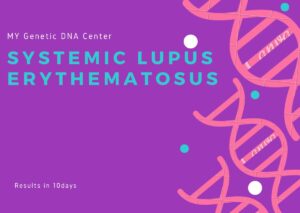AMIKACIN:
Amikacin is a potent antibiotic that belongs to the aminoglycoside class and serves as a critical treatment for severe bacterial infections, particularly those caused by Gram-negative bacteria. Doctors prescribe it for patients who suffer from life-threatening infections such as septicemia, pneumonia, urinary tract infections, bone and joint infections, and resistant forms of tuberculosis. The medication works by directly interfering with bacterial protein synthesis, preventing bacteria from growing and multiplying, which allows the body’s immune system to eliminate the infection effectively.
Physicians administer Amikacin through intravenous or intramuscular injections, carefully calculating the dose based on the patient’s weight, kidney function, and the severity of the infection to maximize effectiveness while minimizing risks. While the drug provides rapid relief and helps control infections that other antibiotics may not treat, doctors closely monitor patients for potential side effects, such as kidney toxicity, hearing impairment, and allergic reactions. By combining strong antibacterial action with careful clinical oversight, Amikacin plays a crucial role in treating resistant infections and improving patient outcomes in critical care settings.
What is Amikacin?
Amikacin is a powerful antibiotic that belongs to the aminoglycoside class and serves as an essential treatment for serious bacterial infections. Doctors prescribe it primarily for infections caused by Gram-negative bacteria, including Pseudomonas, Escherichia coli, and Klebsiella species, especially when other antibiotics fail to work. The medication works by binding to bacterial ribosomes and disrupting protein synthesis, which stops bacteria from multiplying and allows the immune system to eliminate the infection.
Physicians administer Amikacin through intravenous or intramuscular injections, carefully adjusting the dose according to the patient’s weight, kidney function, and the severity of the infection to maximize therapeutic effects while minimizing risks. Although Amikacin provides rapid and effective control of severe infections, doctors monitor patients closely for potential side effects such as kidney damage, hearing loss, and allergic reactions. By combining strong antibacterial action with careful clinical oversight, Amikacin offers a critical solution for treating resistant and life-threatening infections, improving patient outcomes and recovery.
What conditions does Amikacin treat?
Doctors prescribe Amikacin for serious infections such as septicemia, pneumonia, urinary tract infections, bone and joint infections, intra-abdominal infections, and certain resistant tuberculosis cases. It proves especially effective against bacteria that do not respond to other antibiotics.
Severe Gram-negative bacterial infections: Doctors use Amikacin to target bacteria such as Pseudomonas, E. coli, and Klebsiella.
Septicemia (blood infections): It helps control widespread bacterial infections in the bloodstream.
Pneumonia: Physicians prescribe it for serious lung infections, including hospital-acquired and ventilator-associated pneumonia.
Urinary tract infections (UTIs): Amikacin treats complicated or resistant UTIs effectively.
Bone and joint infections: Doctors use it for osteomyelitis and other severe skeletal infections.
Intra-abdominal infections: It helps manage infections in the abdominal cavity caused by resistant bacteria.
Resistant tuberculosis: Amikacin serves as a treatment option for multidrug-resistant tuberculosis (MDR-TB).
Skin and soft tissue infections: Physicians prescribe it for severe or complicated infections that do not respond to other antibiotics.
How does Amikacin work?
Who should take Amikacin?
Doctors prescribe Amikacin for patients who have severe bacterial infections, especially those caused by Gram-negative or multidrug-resistant bacteria. They recommend it for individuals with conditions such as septicemia, pneumonia, urinary tract infections, bone or joint infections, and resistant tuberculosis. Physicians exercise caution when prescribing Amikacin to patients with kidney problems, hearing issues, or neuromuscular disorders, as these individuals face a higher risk of side effects. By carefully selecting suitable patients, doctors ensure the medication provides effective treatment while minimizing potential risks.
How is Amikacin administered?
Doctors administer Amikacin through intravenous (IV) or intramuscular (IM) injections, depending on the patient’s condition and the severity of the infection. They calculate the dose based on the patient’s weight, kidney function, and the type of infection to ensure maximum effectiveness while minimizing side effects. Medical staff give the injections in a clinical setting, monitor the patient during administration, and adjust the dosage as needed throughout the treatment to maintain safe and effective therapy.
Are there side effects of Amikacin?
Yes, Amikacin can cause side effects such as kidney toxicity (nephrotoxicity), hearing loss (ototoxicity), dizziness, and muscle weakness. Patients may also experience allergic reactions, rash, or injection site pain. Doctors monitor kidney function and hearing during therapy to minimize risks.
Can Amikacin interact with other medications?
Amikacin can interact with other nephrotoxic or ototoxic drugs, such as certain diuretics, other antibiotics, or chemotherapy medications. Combining these drugs increases the risk of kidney damage or hearing loss. Doctors review all medications before prescribing Amikacin to avoid harmful interactions.
Benefits of Amikacin:
Treats severe infections: Doctors prescribe it for serious bacterial infections that resist other antibiotics.
Effective against Gram-negative bacteria: Amikacin targets bacteria such as Pseudomonas, E. coli, and Klebsiella efficiently.
Rapid action: The medication quickly inhibits bacterial growth, often showing results within 24–48 hours.
Versatile administration: Doctors can administer it intravenously or intramuscularly depending on the patient’s condition.
Supports treatment of resistant infections: Amikacin helps manage infections caused by bacteria resistant to other aminoglycosides or antibiotics.
Prevents spread of infection: By effectively killing bacteria, it reduces the risk of systemic complications or sepsis.
Monitored therapy enhances safety: Regular blood tests and kidney function checks allow doctors to optimize the dose and minimize risks.
Limitations of Amikacin:
Risk of kidney toxicity: High doses or prolonged use can damage the kidneys.
Risk of hearing loss: Amikacin can cause ototoxicity, especially in patients with pre-existing hearing issues.
Requires close monitoring: Doctors must monitor kidney function, hearing, and blood levels during treatment.
Injection-only administration: Patients cannot take it orally, limiting convenience and requiring clinical visits.
Potential drug interactions: Combining Amikacin with other nephrotoxic or ototoxic medications increases side-effect risks.
Not suitable for mild infections: Doctors reserve it for severe or resistant infections due to potential toxicity.
Allergic reactions and local irritation: Some patients may develop rash, redness, or pain at the injection site.
Can anyone stop Amikacin suddenly?
Patients should not stop Amikacin abruptly unless a doctor advises it, because incomplete treatment can allow bacteria to survive, potentially causing relapse or antibiotic resistance. Doctors determine the full course and duration to ensure the infection resolves completely.
Patients should not stop taking Amikacin suddenly because abruptly discontinuing the antibiotic can allow bacteria to survive and potentially cause the infection to return or worsen. Doctors determine the full course of treatment based on the severity and type of infection, the patient’s kidney function, and response to therapy. Following the prescribed schedule ensures that the antibiotic fully eradicates the bacteria, preventing the development of antibiotic resistance. Stopping treatment early can compromise effectiveness, increase the risk of complications, and make future infections harder to treat. Patients must follow their doctor’s instructions carefully and complete the entire course of Amikacin to achieve the best outcomes and maintain long-term health.
How do doctors monitor Amikacin treatment?
Doctors monitor Amikacin treatment closely to ensure the medication effectively treats the infection while minimizing potential side effects. They regularly check kidney function through blood tests, as Amikacin can cause nephrotoxicity, and assess hearing to detect early signs of ototoxicity. In some cases, physicians measure Amikacin blood levels to confirm the dose stays within a safe and effective range. Doctors also observe the patient’s overall response to therapy, tracking improvements in symptoms such as fever, pain, or infection markers.
By combining laboratory monitoring with clinical evaluation, doctors adjust the dosage or duration of treatment as needed, ensuring the antibiotic provides maximum benefit while protecting the patient’s health. Physicians monitor kidney function through blood tests, assess hearing periodically, and sometimes measure Amikacin blood levels to ensure the dose remains within a safe and effective range. Regular monitoring helps prevent toxicity while ensuring the antibiotic effectively treats the infection.
How long does it take to get results from Amikacin treatment monitoring?
Doctors typically monitor this test therapy through blood tests and clinical assessments, and they usually obtain results within 24 to 48 hours. These tests measure kidney function, hearing indicators, and sometimes Amikacin blood levels to ensure the dose remains safe and effective. Physicians review the results promptly to adjust the dosage if necessary, track infection improvement, and prevent potential side effects. Regular follow-ups allow doctors to respond quickly to any changes in the patient’s condition and maintain optimal treatment outcomes.
Conclusion:
This test remains a vital antibiotic for treating serious and resistant bacterial infections, offering rapid and effective control over pathogens that other medications may not eliminate. While its potent action provides significant therapeutic benefits, careful monitoring of kidney function, hearing, and overall patient response ensures safety and maximizes effectiveness. By balancing strong antibacterial properties with responsible medical oversight, Amikacin continues to play an essential role in managing severe infections and improving patient recovery outcomes.





